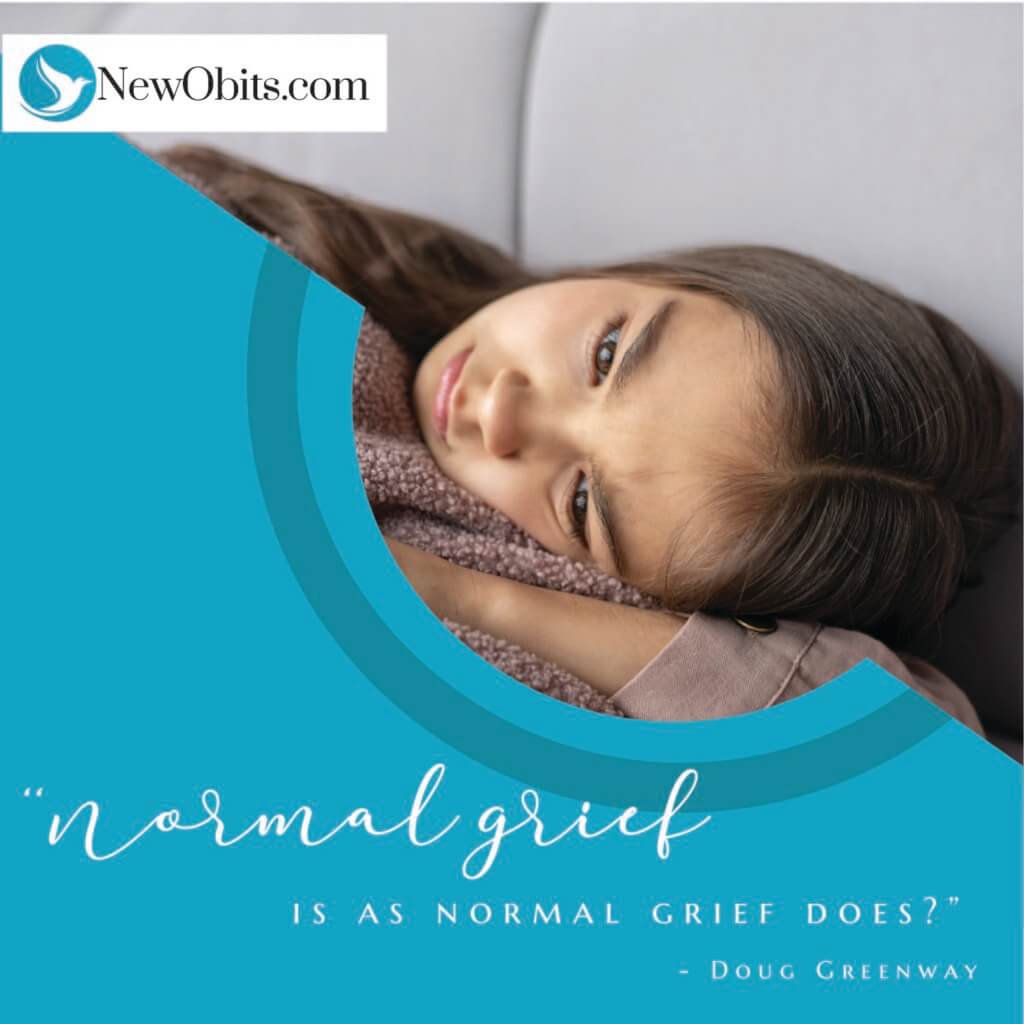
There are several normal reactions to normal grief.
Sleep problems may persist in difficulty going to sleep, staying asleep, or getting up too early. This might be an issue to discuss with your doctor, particularly if you are still trying to keep a school or work schedule or have little ones at home. Over time, normal sleep disturbances usually correct themselves. People may elect to take their dog to bed with them, adopt a body pillow or use a smaller bed until able to sleep alone in their old bed comfortably.
Appetite disturbances may be readably noticeable. Grieving people may overeat or undereat, but undereating is more common. Significant weight changes may be a telltale sign.
Absent-minded behavior may become more frequent. More than usual time may be spent searching for lost keys, lost vehicles in a parking lot, and entering a room only to forget what you came after. Keep a refrigerator calendar and write down EVERY appointment and set alarms as reminders.
Dreams of the deceased are common, both pleasant and unpleasant.
Avoiding reminders of the deceased are unique but common. I have known people who avoided certain hospitals, cemeteries, or objects that remind them of their loved one’s absence. Quick disposal of the body might be a clue to the beginnings of complicated grief.
Sighing, restless overactivity, crying, obsessive preoccupation with objects that remind the survivor of the deceased, building a shrine to the memory of the deceased, and such like may be indicative of a more complicated bereavement process, especially as time goes by.
Is it normal grief, complicated grief or is it depression?
Many of the normal or pathological grief reactions one may witness in themselves, or others may be misinterpreted as depression. Similarities between grief and depression involve sleep disturbance, appetite disturbance, and intense sadness. But in a depression, there is additionally often a loss of self-esteem. A complete physical and psychological history must be taken to ascertain what is normal and abnormal for the sufferer — without regard to preconceived notions or generalizations about the public at large.
What are the best predictors of our reaction to grief?
The best predictors of future behaviors are past behaviors and an accurate assessment of who the survivor is.
Who was the deceased to the griever? How emotionally close were they? What, if any, were the negative feelings between them? What was the mode of death? (Was the death natural, accidental, suicidal, or homicidal?) You need to know if the griever had previous losses and how they grieved them. A person’s prior mental health history will be important here. People who battle depression typically do not handle the negatives of a life well.
Never forget that God made each of us unique in all the world. How well do I handle anxiety? How well do I cope with stressful situations? Am I a highly dependent person? Do I form and keep an active support system? What other stressors are currently going on in my life?

Doug Greenway
These blog articles are written by the retired minister and former educator and counselor, Doug Greenway. He'd love to hear from you with your comments, questions, or suggestions for future topics. You may reach Doug at doug_greenway@yahoo.com.
